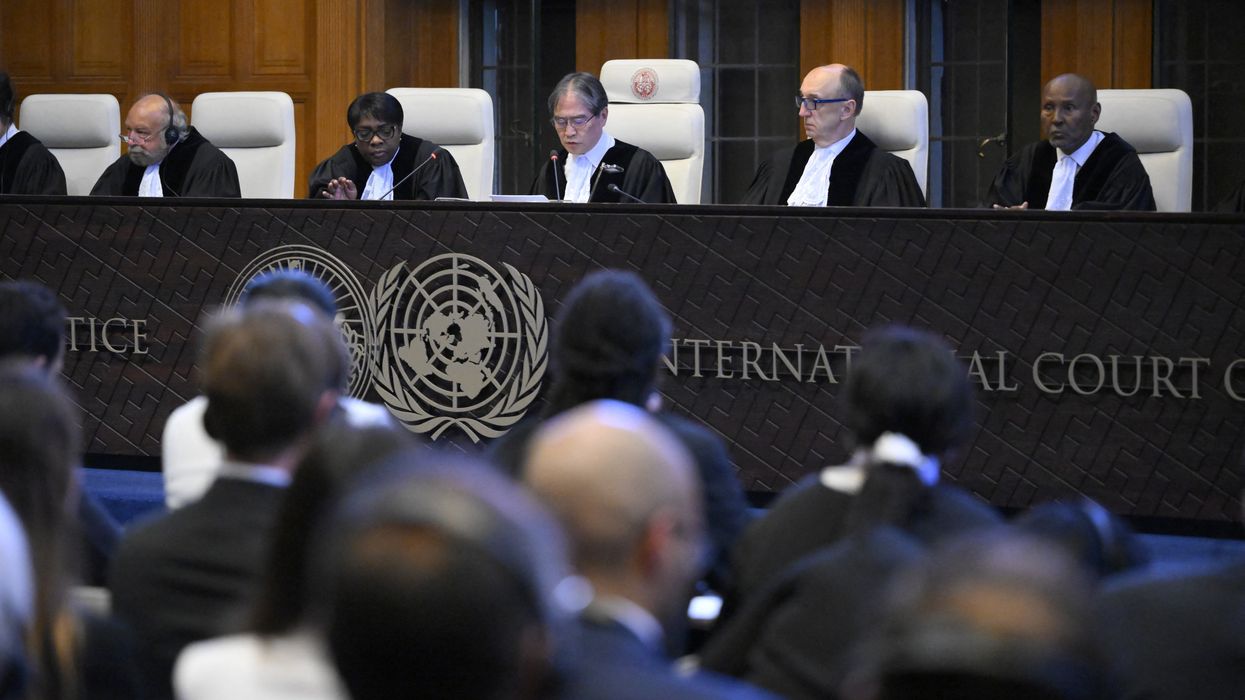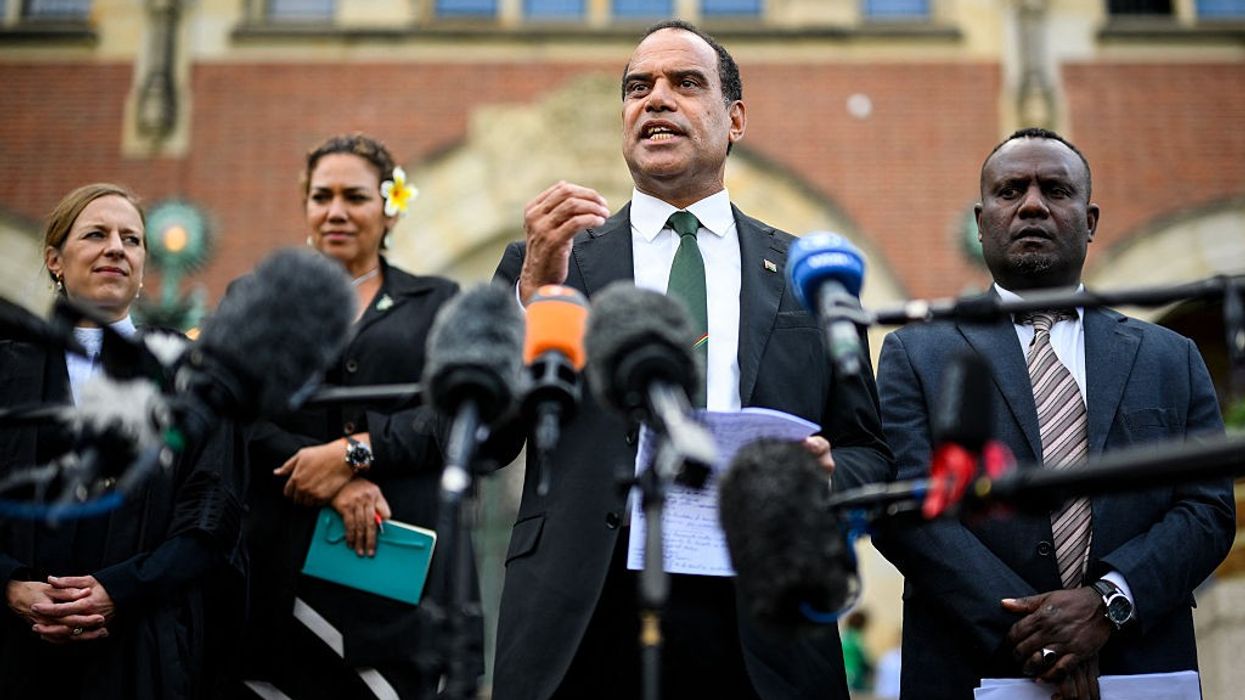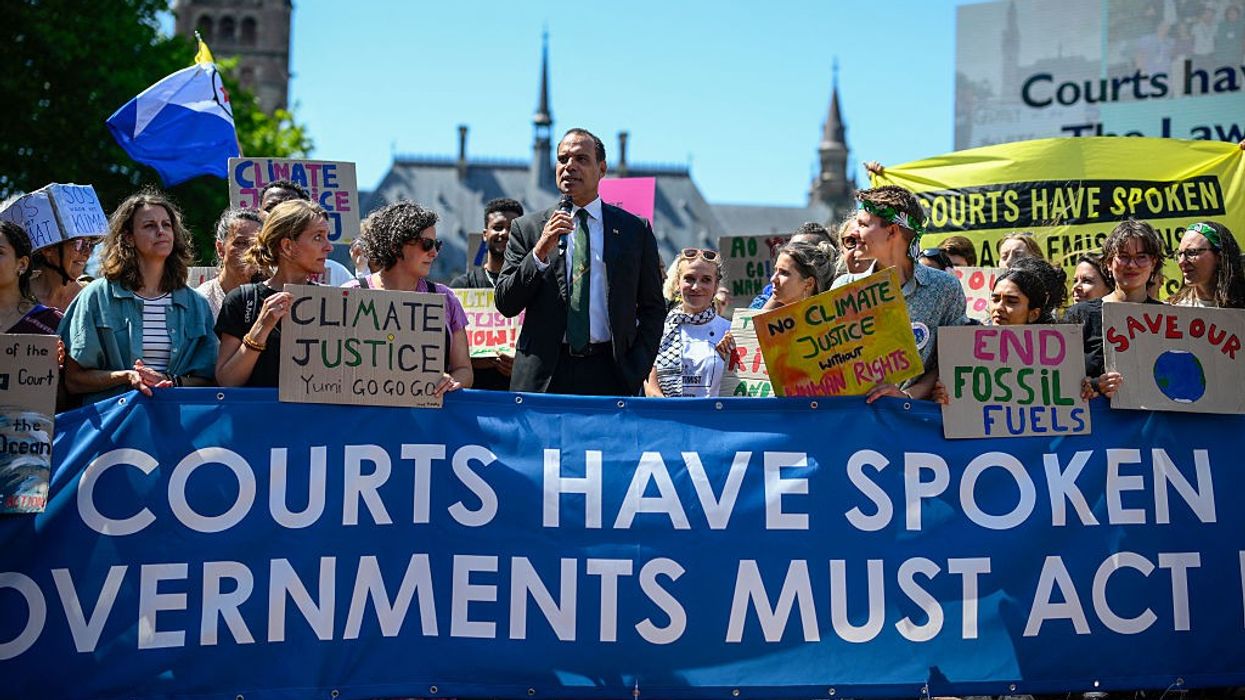Could an ICJ Ruling Help Shift Us From Climate Impunity to Climate Accountability?
The International Court of Justice held this week that failing to protect the planet from global warming could be a violation of international law.
Of all the frustrations that go with watching the rise of the MAGA right here and around the world (and the rise of their billionaire and corporate allies), perhaps none tops the sense that they are never held accountable for anything—that on any given day U.S. President Donald Trump, and the minor Donald Trumps of the world, do things that at any other point in our lifetimes would have ended their political careers or landed them in jail. And… nothing. Some combination of utter brazenness, flooding the field with so many scandals that none stick, and the fear they induce in too many who might otherwise raise questions has let them get away with, well, murder. (And rape). But there’s some sense this week that that might not go on forever.
In the Middle East, for instance, Israel and America’s cruel decision to starve Gazans into submission is beginning to bring even the timid off the sidelines—as the pictures of protruding ribs flooded the news, France announced yesterday that it would recognize a Palestinian state, and it seems possible that Britain may follow suit as early as today.
And in America the Epstein case seems, at the least, to be making the White House sweat—they may well be able to cover up files, buy off witnesses like Ghislaine Maxwell, and shutter D.C. till things die down. But for once it’s not automatic—one senses that a few more Americans are seeing through to the ugly core.
Meanwhile, in the longest-running crime of all—the decades-old and ongoing effort by the oil industry, with massive amounts of government backup, to wreck the planet’s climate—there was an interesting new development. The International Court of Justice held this week that failing to protect the planet from global warming could be a violation of international law. As The Associated Press explained, judges in the Hague ruled that “countries could be in violation of international law if they fail to take measures to protect the planet from climate change, and nations harmed by its effects could be entitled to reparations”:
“Failure of a state to take appropriate action to protect the climate system... may constitute an internationally wrongful act,” court President Yuji Iwasawa said during the hearing. He called the climate crisis “an existential problem of planetary proportions that imperils all forms of life and the very health of our planet.”
The ruling came in a suit brought by the low-lying island state of Vanuatu, and backed by 130 other nations. As United Nations chief António Guterres said:
This is a victory for our planet, for climate justice, and for the power of young people to make a difference. Young Pacific islanders initiated this call for humanity to the world. And the world must respond.
It’s not clear what this means in the immediate future—there’s no way for the court to force, say, Exxon, or the United States, to pay reparations for the damage they’ve done. As the chief judge said, international courts can play “an important but ultimately limited role in resolving this problem.” But for those nations that still pay some attention to international opinion (which would be most nations except ours), the ruling will be one more spur to action—it will certainly heighten the rhetoric and the stakes at COP30, the next global climate talks which will be held (sans America) in Belem, Brazil in November.
And it’s not as if there’s no chance that this will eventually mean something. European-based oil companies, for instance—which often have some state ownership and control—may be more exposed. "The legal consequences resulting from the commission of an internationally wrongful act may include... full reparations to injured states in the form of restitution, compensation, and satisfaction," said ICJ President Yuji Iwasawa on behalf of the 15-judge panel.
At the moment the oil companies imagine themselves to be unshakable colossi, astride the world because they control Washington. But as so often, it is in the moment of greatest hubris that disaster looms. Here’s an ominous little note for them: Chinese data yesterday showed that Beijing has managed to essentially end all imports of oil and gas from America. That’s a big change—as Bloomberg notes: “Crude is the most heavily traded commodity in the world and China the biggest buyer. In June last year, its purchases from the U.S. were worth nearly $800 million.” But no more—remember, China is currently installing 100 solar panels a second, and more than half the cars it sells have a plug dangling out the back. They’re figuring out how to say buzz off to Big Oil.
So imagine, for a moment, a scene in 2029, when the balance of power has shifted in Washington—and when it’s become clear that we no longer really need fossil fuels to power the world. It’s not impossible to imagine that an America seeking to rejoin the world, and needing to make amends for the utter stupidity of the Trump years, might not see the oil industry as a useful sacrifice to offer the rest of the planet. “Restitution, compensation, satisfaction.” Justice delayed is justice denied, as the British Prime Minister William Gladstone correctly remarked. But to everything there is a season, as King Solomon also correctly remarked.
At any rate: we keep fighting. Next stop on our calendar is of course Sun Day, and in honor of the glory days of high summer here’s a particularly juicy version of the logo that popped up in the global gallery this week:



